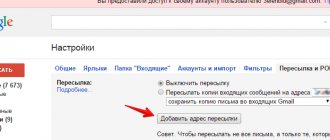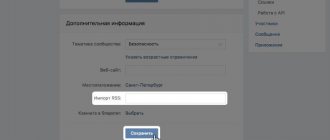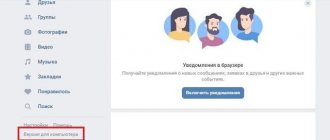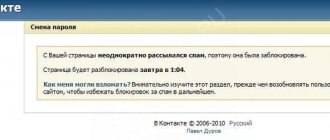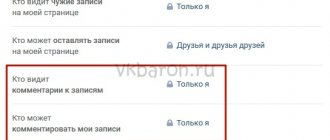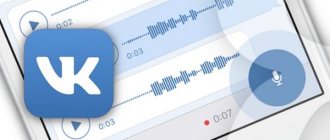Raise your hand who listens to podcasts? I am sure that there are quite a few fans of this format among our readers. Recently he has found a second wind and has become very popular. Yes, yes, it’s a second wind, because in essence, a podcast is the same radio program, only distributed on the Internet. That is, the idea is not new at all. The term itself was formed from two English words: iPod (player from Apple) and Broadcast (broadcast). The fact is that podcasts were originally listened to using MP3 players, and the iPod was the most popular of them. Hence the name.
Any podcast is built according to a very simple scheme. The presenters gather and discuss pressing issues and interesting topics among themselves, sometimes with specially invited guests. Some podcasts are recorded not only in audio, but also in video format.
Before sitting down to write the article, I asked my colleagues who was listening to what. The top included “Disgusting Men”, KuJi Podcast, Arzamas, “Lectorium”, Cinema Critique, “Medusa” and more. As you can see for yourself, the range of topics is great. Indeed, today there are podcasts in almost all industries: cinema, music, literature, cooking, computer games, art, history... In short, just like with YouTube channels. Well, since the format is popular and since it is applicable for different areas, then why not use this feature to promote your business?
Podcasts and business: is there any point in friendship?
Of course, it's not wise to spend resources on podcasts to promote your company if you don't understand how they will benefit you.
Creating podcasts is a branch of content marketing, such as SMM promotion or email distribution, because in all these cases different types of content are prepared. Well, since we are talking about content marketing, you shouldn’t expect quick sales and profits. Let me briefly remind you that content marketing helps:
- attract new target audience and improve relations with the existing audience, become an expert in their eyes,
- increase brand awareness,
- talk about the benefits of your product,
- close the fears and doubts that people have regarding cooperation with you.
Read more about how content marketing works in this article, and we'll get back to podcasts. In general, you will solve all the listed problems with their help. But the most important thing is to increase your reach, increase your popularity, and gain a strong competitive advantage. After all, you will be in trend. 
If you have decided on the benefits, then it’s time to move on to the technical issue. How to create a good podcast and where to host it? I’ll give advice on the first point a little further, but let’s talk about the second now. There are 2 options for hosting a podcast: your own resource or a third-party site.
You can use your website if it is already pumped up, promoted, and has good traffic. For example, we initially published podcasts on our website, and only then created a VKontakte platform.
For those who are still in the process of resolving these issues, I recommend choosing a third-party platform. There are quite a few of them, but the most popular are Yandex.Music, iTunes, Spotify and, of course, VKontakte. Actually, that’s why this article is written by an SMM specialist. And, as you already understand, next we’ll talk about how to upload and register podcasts in the VKontakte community.
There are quite a few of them, but the most popular are Yandex.Music, iTunes, Spotify and, of course, VKontakte. Actually, that’s why this article is written by an SMM specialist. And, as you already understand, next we’ll talk about how to upload and register podcasts in the VKontakte community.
I want to record a podcast. Where to begin? Absolutely comprehensive instructions for “Medusa”
This message (material) was created and (or) distributed by a foreign media outlet performing the functions of a foreign agent, and (or) a Russian legal entity performing the functions of a foreign agent.
Sign the petition demanding the repeal of the law on foreign agents!
There is a boom in podcasts in Russia. It seems that now everyone produces podcasts - from schoolchildren to Chubais. We at Meduza, for example, launched ten new podcasts in 2021. From the outside, everything is simple: I took an iPhone, sat down in the kitchen with a friend, discussed new TV series with him, uploaded the file to Apple Podcasts and woke up as a famous podcaster. But what really? For those who are planning to record a podcast, but do not yet understand how to approach it, we have prepared absolutely comprehensive instructions: where to start, what equipment to choose, how to edit, what platforms to upload to.
What is my podcast about and for whom? What genre is the most fashionable: narrative, talk show, interview?
The question we ask ourselves every time we come up with new podcasts on Meduza: what do we want to tell and who do we want to tell it to? Think about why you need a podcast and not a video for YouTube or TikTok. Are you sure your story is suitable for audio? No, we are not discouraging you, but by answering the question “why am I doing this?”, you will better formulate the idea.
Try to be as precise as possible about the subject you are going to talk about. That is, you conceived not just “a podcast about music”, but “a podcast about lute music of the 16th century, in which composers of that era talk about their work in the first person.”
Study your competitors, listen to podcasts from the top Apple Podcasts or CastBox: this way you will understand what podcasts on a similar topic already exist and how you can differ from them (and at the same time, look up professional techniques).
Think about which format best reflects your idea: a monologue, a conversation between several presenters and guests, an interview, a narrative (like a documentary, only in audio format: with the author’s text, sound inserts and voices of the characters). This will determine, among other things, what equipment will have to be used and how long the preparation, recording and editing of the episode will take.
It's also helpful to outline the frequency of your episodes in advance. How often are you going to record and publish them? Do you have enough time and energy to do this regularly - daily, weekly or monthly?
I know what my podcast will be. What's next: the title?
Surely, you already have several name options. Which one to choose? First of all, Google and see if there is a podcast with the same name. The name should be original enough that your project can be easily found in a search, but not too pretentious that listeners will remember it.
Coming up with a name can sometimes be excruciatingly difficult. We at the editorial office argued for a week about what to call Marianna Orlinkova’s podcast about food. We tried dozens of options and were ready to agree to “Full Stuffing” when sound engineer and podcast editor Vitya Davydov threw the name “Complicated cabbage soup” into the chat - we realized that this was a bid for victory!
Do you need a script?
Preparation and structure are everything. Listen to your favorite podcasts and you'll realize that even talk shows have a script, where the hosts seem to just chat about random topics.
It is not necessary to write out every line and question, but there should be a general outline of the episode. Why is all this needed? Firstly, you will spend less time recording (and editing a prepared conversation is much easier and faster), and secondly, you will quickly capture the attention of the audience. Think about how you listen to podcasts: you probably don’t want to waste your time listening to the presenters’ abstract conversation for five to ten minutes and waiting for them to finally tell you what their podcast is about.
Here, for example, is how all the episodes of “Give Birth First” are structured: the hosts introduce themselves, each time briefly talk about themselves and the podcast in general for those who might have turned it on for the first time, then answer questions from listeners, then move on to discussing the main topic, and at the end they remind you where you can listen to the podcast. In addition, the episode always opens with bright quotes, and at the very end you can hear funny moments from the recording, unsuccessful takes - the so-called bloopers.
All episodes
- iTunes
- RSS feed
- Google Podcasts
- Spotify
- Castbox
- Yandex.Music
- Bookmate
- YouTube
“The honored artist performs without an audience!” Fathers talk about family traditions (sentimental issue)
00:0028:28
How to choose a recording technique? Do you have to buy an expensive microphone?
Good sound is a matter of respect for the listener. Saying “oh, everything here whistles and rumbles, but such an interesting guest, be sure to listen” is the same as saying “oh, we have a lot of typos in the book and in some places the paint is too pale, but the novel is so interesting, be sure to read "
Under certain conditions, even an iPhone can record good sound, but for a professional podcast it is better to think about additional equipment. You can buy it or, if in doubt, rent it.
If you do write on an iPhone, pay attention, firstly, to the acoustics of the room (more on this in the next paragraph), and secondly, to how close you are to the phone: both you and your interlocutor should be clearly heard. Try to do a test, record a couple of minutes, listen and determine at what distance from the phone you get the best quality sound.
If you are sure that your love for podcasts is serious and long-lasting, then you will have to understand professional equipment: microphones, external sound cards, mixing consoles, porta studios (god, what is this?) and headphones.
What to choose and how to put it all together?
There are several basic configurations.
- USB microphone + computer (here is a very detailed analysis of how to choose an inexpensive and high-quality USB microphone: even if you don’t read English, the article can guide you by brands and models). In Russia, such microphones cost from 1000 rubles. The file is written directly to the computer.
- Lavalier microphone + smartphone/computer. Prices for lavaliers that provide decent sound quality start at 1000 rubles. The file is immediately written to your device.
- Porta studio with built-in microphones (or you can additionally connect external microphones). Sound is usually recorded on an SD card. Essentially, this is a professional digital voice recorder that can be used both in the studio and on the street. The cost of porta studios is from 10 thousand rubles.
- Microphone + mixing console / external sound card + computer. Unlike the first option with a USB microphone, this configuration allows you to simultaneously connect several professional microphones (like on a radio) and other devices (for example, musical instruments). Also, the remote control or external sound card gives the microphone the necessary gain (so that voices are recorded loudly and volumetrically enough). Microphones cost from 5 thousand rubles, mixers and external sound cards - from 3.5 thousand rubles.
How to choose a microphone?
A short tip is this: dynamic microphones are more practical for unprepared rooms than condenser microphones. Dynamic microphones are less sensitive, so less background noise gets into the recording, and condenser microphones are more sensitive, so it is better not to use them in a room without soundproofing. Sound designer Dmitry Novozhilov writes in detail about how the type of microphone affects the recording.
What other equipment will you need?
- Microphone stands. It is difficult to hold the microphone in your hands for the entire recording, and it will also create rustling and rustling noises, which will then be impossible to remove during editing. So put a microphone stand on your checklist.
- Wind protection. A foam pad on a microphone or voice recorder will help prevent spitting (as they say when the sounds “p”, “t” or “b” seem to hit the microphone membrane, which sounds like a gunshot when played back), and when recording outdoors it will slightly reduce wind noise .
- Wires. To connect microphones to a porta-studio or mixer, it is best to use cables with XLR connectors; as a rule, they transmit the signal without distortion.
What brands should you look for when choosing equipment?
- Popular microphone manufacturers include AKG, Audio-Technica, Behringer, Boya, Trust, Rode, Blue, Sennheiser, Shure, Oktava and Soyuz.
- Porta studios are produced by Tascam and Zoom. External sound cards - Behringer, Zoom, Tascam, Roland, Steinberg, Native Instruments.
- Mixing consoles that are most often found on the Russian market: Behringer, Allen & Heath, Yamaha, Mackie, Soundcraft.
Where can I record a podcast? Can I write in the kitchen or do I have to go to the studio?
You can go to the studio. There you pay for time, and the studio is responsible for everything else: the sound engineer records your conversation and gives you the file.
But many podcast hosts work from home because you can actually record anywhere, even in the kitchen. The main thing is that the room is prepared.
What does it mean? Your voice reflects off the surfaces of the room, so the main goal is to keep these reflections to a minimum so that listeners don't feel like you're sitting in a tube. Bookcases, heavy curtains, carpets, upholstered furniture - all this significantly reduces the echo of the room. In emergency situations, a blanket can save you; I learned this life hack when I was reporting from the Olympic Games. It was urgent to record and send material from a hotel room, and hotel rooms almost always echo. You cover yourself with a blanket and immediately get studio conditions.
At Meduza, for recording podcasts, we equipped one of the office rooms: there is carpet on the floor, blank curtains on the windows, and we also have a four-meter folding sound-absorbing screen. We record most of our podcasts in this room. But not all. Thus, Vladimir Pakhomov and I most often record the podcast about the Russian language “Rosenthal and Guildenstern” (get ready, there will be a revelation) in the kitchen: we close the door, lower the curtains and hang a blanket on the wall.
If you are recording an interview outdoors, use wind protection. In strong winds, cover the recorder with the hem of your raincoat or coat.
And be sure to wear headphones while recording to listen to the final sound. With headphones, you will immediately understand whether you are moving away from the microphone, whether extraneous noise is getting into the recording, or whether the sound level is normal. Only with headphones you truly control the process.
What if my guest is in another city? Is it enough to record a conversation on Skype?
Studio recording is always better than recording by phone, Skype or Facebook. Therefore, if your interlocutor cannot come to you, ask him to simultaneously record himself on a smartphone or voice recorder. Then he will send you his track, and you will combine this recording with your cues in the edit.
And also record the conversation on Skype, just in case: this way you will always have a backup copy and the guest’s valuable statements will not be lost.
For example, the host of the “So It Will Be” podcast, Daniil Dugaev, and his guests are often in different cities and countries, so each participant is recorded using professional equipment, and then the files are combined into one, and it seems as if the conversation is taking place in the same studio. We recorded the episode about the future of media from three countries altogether: the presenter was in Barcelona at that moment, Meduza director Galina Timchenko was in Riga, and co-owner of the Sports.ru website Dmitry Navosha was in Moscow.
Hurray, I recorded everything, now I need editing. How is that?
Without editing, no podcast exists. Even if you recorded what you think is a smooth conversation without any hiccups, you should at least put on a header.
To edit, you need to install a sound editor program on your computer. There are dozens of them, among the most popular are SoundForge, Audacity (this program, by the way, is free), Adobe Audition, SonyVegas, GarageBand. The principle of operation is the same for all: on the screen you see a diagram of a sound wave. To delete a fragment, you need to select this period of time on the diagram with the mouse and click Delete.
Remove disclaimers, long pauses, loud sighs, and any statements that you feel are not relevant to the topic of the podcast. Rearrange the pieces and build the drama of the podcast.
Editing also means adding music and effects, sound design. It will take time to master all the techniques, so at first ask sound engineers you know for help, read recommendations and articles on specialized websites (here they explain in detail how to process sound and remove noise).
I want to add a David Bowie song to the podcast. So it is possible? Where can I get music for the design?
There are many nuances to using famous songs in podcasts, but the most common answer is that you can include a short snippet of a David Bowie song as a quote if your podcast is about that song (for example, you have an episode about the history of that song), but you can’t take the track as a screensaver, filler, or put it in the background of your conversation.
Where do podcast writers get their music from? Music for your show can be ordered from the composer, or you can get it from sites where databases of tracks for podcasts and videos are posted. On such audio stocks, music can be bought or often even taken for free under the conditions established by the author. For example, there are several types of Creative Commons license: one type requires only the name of the author - then you can change, rework the music and use it for commercial purposes (for example, for advertising in your podcast), while another type allows you to use only the entire track and only for non-commercial purposes and so on. Also in these databases you can find noises (wheel creaking, water splashing, knocking on the door and other sounds for decoration).
- Music databases: Incompetech, Audioblocks, Music For Makers, Free Music Archive, Freesound, Creative Commons Music.
All podcasts have trailers. What is this for?
A short audio clip is an advertisement for your podcast. A trailer for a podcast is basically what a trailer is for a movie: it shows what your podcast is about and why you should listen to it. These can be bright, intriguing or simply funny phrases from your episodes; or, if the episodes have not yet been recorded, a short story about why your project is interesting; or an unusual sound picture (after all, podcasts are primarily about sound). For example, the trailer for the podcast “Rosenthal and Guildenstern” opens with a whole scene stylized as a typical shootout in Westerns, and the trailer for “Complicated Cabbage Cabbage” begins with a soundscape of a kitchen.
It’s also convenient to post the trailer first in the rss feed of your podcast (we explain what rss is and how to do it in the corresponding paragraph), so that it is published on all platforms, and by the time the first episode is released, you already have a ready-made channel that has been verified and confirmation on Apple Podcasts and other services.
What should the cover be like?
The cover is also an important element of the podcast. A memorable image will help promote your project. Podcasts appear in small icons in many apps, so try to avoid very small details that are difficult to see. Order a cover from a designer and first check the image requirements on different platforms. Find out what your Apple Podcasts show cover should look like here.
Perhaps one of the most impressive covers of our podcasts is for “Calculator”: gold on a black background immediately makes it stand out on the website and in any podcast application.
What needs to be done for the podcast to appear in applications? Everyone is talking about RSS - how does it work?
If you are a video blogger, the first thing you go to is YouTube. There is no single platform for podcasts yet, so to get the greatest reach, you must be everywhere: on Apple Podcasts, Google Podcasts, Spotify, CastBox, Soundcloud, Yandex.Music and many other platforms. The good news is that you don’t need to upload files to each site separately; you just need to create an RSS feed in one place, which will then send your podcasts to all platforms with all the information (cover, title, text).
RSS is a special link that broadcasts regularly updated content on a server. Your files are located on one server, and other sites receive data from there via RSS feed. When you upload a new podcast, it is automatically sent to all platforms that access your RSS link.
You only need to make such a link for your podcast once - and then all that remains is to paste it into the fields specially provided for this on different platforms.
How to make RSS?
- Option 1: register with one of the podcast services, for example, Soundcloud or Castbox, upload files there - and this service will generate an RSS link for you.
- Option 2: register on one of the paid hosting sites for podcasts (Lybsin, SimpleCast - read a detailed comparison of hosting sites here), upload everything there - and the system itself will make RSS and send it to all podcast platforms.
- Option 3 (the most difficult): create a blog (for example, on WordPress), and then insert a link to your page into the form on the Feedburner website (Google account required). You will also need to upload a description and cover of the podcast to Feedburner.
How to publish a podcast on Apple Podcasts?
Log in to the iTunes Connect website using your Apple account, select the podcasts section and paste the link to the RSS feed into the special field. The podcast is submitted for approval and usually becomes available within a few days. By the way, many other applications automatically pull all the podcasts that are posted on Apple Podcasts into their catalogs.
How to get to Yandex.Music?
Applications are submitted through this page.
I see my podcast on iTunes. Is this a success?
You launched a podcast - that's cool! But this is only the first step to success. Be patient, try to keep up the pace and post regularly. The audience comes gradually, and if the statistics of the first episode are worse than you expected, this is not a reason to quit. Promote your podcast: encourage listeners to rate, write comments and tell friends, and ask podcast guests to leave a link to the episode on social networks. Meet other podcast authors and negotiate cross-promotions.
And remember: sound, design, headlines are all important, but content is even more important. So, no matter what kind of microphone you have, whether you hire a staff of producers and sound engineers, or work alone, the main thing is that you have something to say!
We don't give up because you are with us
"Medusa", I'm with you
Chief producer of the Meduza podcast studio Alexander Sadikov
VKontakte podcasts: how the mechanism works
The ability to publish podcasts on VKontakte appeared in September 2018. Initially, access to the tool was open only to a few large and popular communities, but today anyone can submit an application and undergo moderation, provided that all requirements are met, but more on that later.
You can listen to VKontakte podcasts on the desktop version of the social network, as well as in the mobile application. To do this, you can either go to the special podcast feed from the main news feed:
Or open podcasts directly in the community, if it hosts them. Podcasts are displayed in a separate widget:
By the way, in the mobile application the section with podcasts is implemented much cooler and more complete than in the desktop version of VK. Here are not only podcasts from those you subscribe to, but also recommendations:
There is a division by topic, which makes it easier to find interesting content. And finally, the “Started Episodes” block has been added so that you can easily return and finish listening to what interests you.
Podcasts are included in the mobile app catalog based on their engagement indicator: the more feedback they receive, expressed in likes, comments and reposts, the higher they rise in positions in a particular thematic category. Simply put, the first task is to hook your audience and get them to share your podcasts. Further attention will grow like a snowball, according to the principle of virality.
There is also a separate block “Interesting Episodes” - the coolest episodes published on the VKontakte site go there. You can be included in “Interesting Episodes” thanks to a special algorithm that looks for the best podcasts based on the same engagement indicator, as well as through manual moderation. You submit an application, it is reviewed by the administrators of the podcast directory and either approved or disapproved. It is clear that only the top episodes are given the honor.
As you understand, the VK audience is huge, many people listen to podcasts on this social network, which means their preparation is one of the keys to the heart of your target audience. If you're inspired by this idea, it's time to start your own podcast.
Instructions: how to apply for VKontakte podcasts
Unlike Products, photo albums, and other apps, podcasts can’t just be turned on at will. To post such content in your community, you must apply and be verified. To do this, you need to write to the bot and answer its questions:
- tell us the name of your podcast,
- indicate the number of completed episodes,
- choose a topic that you relate to (education, TV and cinema, beauty and fashion, society and culture, etc.),
- show finished episodes,
- provide a link to the community where the podcasts will be posted.
Once you answer all the questions, you will receive this message:
It is clear that you can undergo moderation only if you have a truly high-quality product, and, moreover, a unique one. Entries must be of good quality, not violating anyone's copyright, not containing threats and not offending anyone. In general, the requirements are the same as for regular posts. Well, in terms of format it should be podcasts
. Not songs, not music, not advertisements.
If you have taken all these points into account, then after a while you will receive good news:
Now you can start posting podcasts in the community and creating a section.
Uploading and creating podcasts in the community
The first thing you need to do is enable the podcast section. For this:
- Go to the community, open the “Management” section.
- Go to “Settings” → “Sections”.
- Under the “Podcast” item, select the “Enabled” option.
Next, fill in the main blocks: description (what your podcast is about), title (you already provided it when you submitted your application), cover (will be displayed in the section header) and category (thematic area). The end result should be something like this:
Your next step is to download the first episode. You can do this in two ways:
Method number 1: through the community menu
As soon as you connect the section, the “Create a new episode” button will appear in the community menu under the “Contacts” block. Click on it and download the episode file.
Afterwards, you can simply add new episodes in the podcasts section by clicking on the icon with a cloud and an arrow.
Method number 2: via RSS feed
This is an automatic option if you have previously posted your podcasts on another site and want to transfer them to the VKontakte community. To do this, go back to “Management” → “Sections” → “Podcast” and look for the “RSS import” item. Turn it on and add the desired link.
Each downloaded episode must be formatted correctly:
- Title:
short, succinct, reflecting the essence of the episode and the main themes. You can use a little humor here, but not to the detriment of the meaning. Many people base their episode titles on the principle of puns. - Description:
here you can add a little more specificity, tell in more detail what is discussed within the episode, introduce the guests, if any. - Cover:
square 1400×1400. You can use an already downloaded section cover for all podcasts, or you can make your own for each episode, at your discretion. But if you bother with design, then make sure that everything is in the same style and echoes the style of the community as a whole.
It is possible to use obscene language in podcasts, but this must be reported by checking the appropriate box. It will not affect the ranking in the directory in any way, it will simply warn users of what to expect.
If your podcast has music, be very careful. Anyone who posts videos on YouTube knows what I'm talking about. Video hosting easily blocks videos that use music for which you do not have the copyright. It's the same with podcasts. Here's what the social network itself says about this:
Therefore, you can only use music that is distributed without copyright. For example, in this community there is a lot of it, you can easily download it, including for content on YouTube.
Once you fill out all the fields, you will end up with something like this:
Any of the downloaded episodes can be used as a trailer, that is, some kind of representation of your section. The very first episode, where you tell what your podcasts are about, who hosts them and how often they will be released, would fit well into this role. To make an episode a trailer, you need to check the appropriate box when loading.
Each uploaded episode can be posted to the community wall as an attachment, such as a photo, video, or poll:
As soon as you post, your followers will be notified that a new episode is available, which will attract additional audience attention. If you are not interested in some notifications, you can turn them off.
One last point regarding the design of podcasts in the community. Don't forget to add a section link in your quick menu to make it easier for people to navigate:
Who needs VK podcasts and are they effective?
VK podcasts are needed by those who want to try a new format of interaction with users and, of course, by authors already involved in podcasting. However, I believe that so far podcasts on VKontakte are not as effective as other types of content on VKontakte or episodes on other platforms.
They are less likely to appear in the main feed, so few people see them. This is the main problem. Even despite notifications about the release of new episodes, there are few listeners.
Let's take for example the Meduza community, which was among the hundred pioneers. The post, published on April 1, was seen by 11 thousand people in the feed in 23 minutes. And the podcast episode, published on March 6, received only 619 plays.
According to my observations, regular posts, videos, photos get more views.
But you need to understand that impressions of posts can be random, but podcasts are listened to purposefully. That is, it is more correct to assess the situation not by impressions, but by activities.
Let's look at activity in other communities. For example, in the group of the independent magazine Discourse, a standard post gets on average 2–4 thousand views, 50–150 likes and a few comments. And the average episode gets just over 150 plays.
Finally, one more example: the KHL community. It has 1.5 million subscribers. Posts within a couple of days get 70–80 thousand views, 500–1000 likes, more than . And the podcast episode received just over 1,000 plays in a month.
Thus, if we compare user engagement, it is approximately the same: a thousand people listen to a podcast for a certain time, a thousand people like/comment on a new post. At the same time, podcasts receive less coverage compared to regular publications. This means that we can say that their conversion is higher: with less coverage, they receive the same activity.
But, IMHO, if you compare podcasts on VKontakte with episodes on other platforms, they lose. The above-mentioned episode from Meduza on VKontakte received only 12 reposts and 162 likes. The same episode, but already on the Meduza website, received more than 400 reposts on Facebook - there is clearly more activity.
I think that podcasts on VKontakte do not work so effectively yet, because users come to the social network for a little something different. And they go to other platforms purposefully to listen to new releases. My advice: try and test the format in a specific niche.
Since businesses do not actively use and monetize podcasts on VKontakte due to the relatively small number of listeners on the site, there is a chance to get ahead of competitors and get all the attention of the target audience. After all, such content engages listeners more and allows them to convey their expertise and increase loyalty.
Instead of a conclusion: what is the ideal podcast?
It is clear that all this instruction is absolutely useless if you have not yet figured out what your podcast will be like. We need to start working on solving this issue, but it just so happens that I got some useful advice at the end of the article. So, what makes a really cool podcast?
We need to start working on solving this issue, but it just so happens that I got some useful advice at the end of the article. So, what makes a really cool podcast?
Original idea
The further you go, the more difficult it is to come up with a topic that no one has taken up. As I said at the very beginning, podcasts are found in almost every field these days. However, it is necessary to find your niche, and at the same time try to formulate the thematic direction as creatively and atypically as possible. The same “Disgusting Men,” whom I dearly love and have mentioned more than once today, talk about completely ordinary things: movies, music, TV series, games (computer and board), food. But they do this in an already recognizable informal, free manner. It’s reminiscent of gatherings of close friends, of which you yourself become a part.
Cool presenters
It's impossible to imagine a podcast without great hosts. By the way, this is a great way to differentiate yourself from competitors (see point No. 1). Obviously, presenters must have a well-spoken tongue, a sense of humor, and a recognizable manner of speech. Meduza has implemented this very well; it is not for nothing that they say that this media has found its voice by launching podcasts.
Expertise
The more informative, educational, and in-depth your podcasts are, the better, especially if you choose a serious topic. As with a corporate blog, podcasts should demonstrate your professionalism. To get inspired, I recommend checking out the Lectorium podcasts.
Interesting guests
Interviews are a very interesting genre, otherwise why are Yuri Dud and Irina Shikhman so popular? You can also implement it in podcasts and build your own feature on it. Invite guests who are interesting to your target audience to a conversation, chat with them about pressing issues and receive the love of listeners. For example, in my hometown, a podcast from a local news portal is very popular, which invites well-known people (bloggers, journalists, officials, businessmen, etc.) and talks with them about personal things, thereby revealing a new side of them to listeners.
High quality
Well, the most obvious thing is to monitor the quality of the recording, use good microphones, and don’t forget about editing. Making a podcast, of course, is easier than making a video for YouTube, but this does not mean that you can write on your phone and not process the recording in any way.

That's all I have. If you have already recorded several episodes of the podcast and want to post it on VKontakte, but have encountered difficulties, write to me at , I’ll try to help. And I will be glad if you share your favorite podcasts in the comments to the article. What if I don’t know someone? 
Eldar Kudaibergenov, 32 years old, city - Nur-Sultan, full-time podcaster
About Me
I have a degree in programming and law, but I love podcasting.
I create them myself and consult people and organizations in this area.
I published my first podcast about Almaty rock bands, The Rock Podcast, in 2008.
By the age of 30, I devoted myself entirely to podcasts, and this has been my full-time job for almost two years.
I am grateful to the people who supported me at the beginning of my journey and are working with me now.
Now I have two regular podcasts.
“#How to Learn” is a podcast for those who study and want to learn better. Many world universities instill study skills in students from the first year and teach them how to study. I also wanted to approach the issue professionally, so I called my former colleague and friend Nikolai Kolesnikov, who acted as a co-host in the first episode. Now there is a second season, 21 episodes.
The second podcast, “The Conscious Father,” was commissioned by UNFPA Kazakhstan.
In this podcast, psychologists and other specialists and I discuss the topic of family, education and relationships, and other issues of conscious fatherhood.
Podcast creation process
To create a podcast, you need to understand what podcasting is
. Many people, without understanding, do an interview on YouTube and call it a podcast, but this is wrong.
You can create podcasts at home, like I do.
I use the Rode Reporter program, which records a very high-quality track on my phone. I use Audacity and Adobe Audition on my laptop.
When recording a podcast, it is important not to interrupt and let the other person talk.
After the person has fully expressed his thoughts, you can ask questions. When processing audio, you can remove everything that is not needed.
Many podcasters don't coordinate episodes.
It seems to me more ethical to coordinate the recording with the guests.
About prospects
Previously, the disadvantages were the speed of the Internet and the inaccessibility of gadgets.
Now that has changed, podcasts are evolving.
Podcasting is suitable for people who like to save their time.
It does not require primary attention. This is a beautiful, useful background design.
Podcasts will be popular in the future.
People make money from this and benefit society. I think good podcasts will be created in the Kazakh language. The Kazakh-speaking audience needs this.
I'd like to dedicate my time full-time to creating a study skills guide on behalf of the How to Study podcast.
We are now looking for partners who could support us in this matter.

